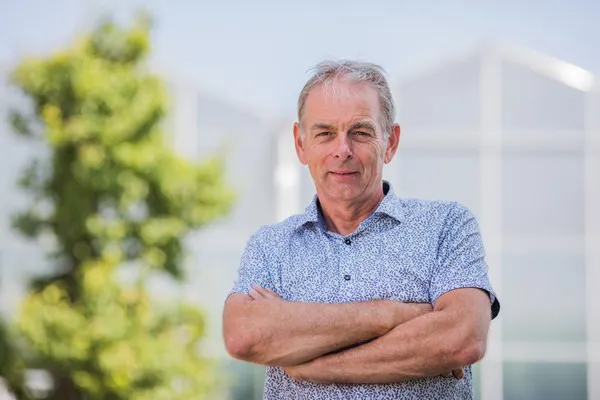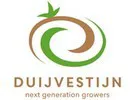Growers are currently living day by day to keep their heads above water in the corona crisis, but this is also the time to start looking ahead as an entrepreneur and to think in terms of opportunities.
That may not be easy, but it is very necessary, argues tomato grower Ted Duijvestijn. "Acute financial support is certainly needed, but that does not alter the fact that entrepreneurs also have to look at their own responsibility."

Anticipate
But what exactly is that responsibility? Patrick Kaashoek of Food Innovations, an innovation network focused on the food supply in South Holland, asked Ted about it in a video interview at the end of March, but Ted is happy to further explain his ideas.
"Now there is a lot of focus on emergency funds and support measures, but far less about the question what this situation will do for the sector and for entrepreneurship. That question is much more complicated and although it still seems early for this question, I have the opinion that now in particular we do have to think about it.”
After all, there will be a time after the Coronavirus and there will also be a new crisis again, which as an entrepreneur you also want to get through well. But in order to do that, it doesn't hurt to make changes at some points in time. It is also the responsibility of the entrepreneur to shape a new future."
Unequal treatment
As soon as the worst crisis problems subside, according to Ted, the social discussion will emerge in full force (again). "Because of the Tomato brown rugose fruit virus (ToBRFV) in tomato cultivation, we actually already had a serious crisis last year, as a result of which, for example, company hygiene protocols were firmly shaken up and improved. In the meantime, however, the social discussion also emerged again, but that discussion now threatens to be pushed back into the background."
Still, according to Ted that shouldn't happen. "Good business is not possible without having attention for the social discussion. For example, I am afraid that (Government) support will cause unequal treatment, for example between entrepreneurs if they receive no, little or less help than the other, but also between entrepreneurs and consumers. To prevent this, it is important to enter into dialogue together."
'A nice side-effect'
One of those topics for a joint dialogue concerns other market systems. "The most important lesson that we are now forcefully learning is that health is more important than the economy. Food horticulture can benefit from this, provided that we are able to demonstrate that what we do is healthy (and sustainable)."
It is also noticeable now how fast things are going with all kinds of local sales initiatives. "Sales through stalls at companies, local delivery or internet sales are now booming. All kinds of innovative ideas are emerging."
Ted mentions that the so-called short chain is also a much discussed topic among entrepreneurs. "Local can mean 20 kilometres by bike or 1000 kilometres per trailer, doesn’t it. Everyone has their own ideas, but one does not have to exclude the other. With a broad interpretation and mutual understanding, you can make progress. And now you can already see that the contact with the surroundings that arises through these sales methods is a nice 'side-effect'. "
In the long term, it is also important to achieve a different appreciation for local and healthy product. "Without a better appreciation in price for a healthy and sustainable product, you will simply have problems again during the next crisis. Entrepreneurs must be able to build up reserves and with the current, often wafer-thin margins, that is not or hardly possible."
Flywheel
For Duijvestijn Tomaten itself, the EHEC crisis and the economic crisis of about ten years ago were a moment for change. "We then realized that we had to be less vulnerable as a company and we started to focus on convenience. Looking back, it was a good step, although it is still difficult to value it economically. But you always learn from doing new things."
Therefore, in the past few weeks there has been plenty of brainstorming and online meetings with all kinds of entrepreneurs to forge innovative plans. "It is nice to see that there is plenty of solidarity between entrepreneurs. Together we are going to crank the flywheel and will not limit ourselves to just making plans."
Appreciation
Entrepreneurs are doers as Ted knows all too well and so they really got started this week. "We will have to make money, because without money there is no investment in the future and without investments you risk being overtaken."
Appreciation for the product also comes into play here. "The trick is to make the economic value visible, but all kinds of other values are also important. Don't forget how important it is for a company to have a good image, to be innovative, to be sustainable and to deal well with people. You also will have to communicate those values. With banks too, for example, because after the crisis they will look even more critically at who they want to lend money to for investment.
New energy
It doesn't have to be a big project to start with according to Ted, as long as action is taken. "For example, after Corona of course, having internships for entrepreneurs at each other’s company. Just getting out of the routine of everyday life and see if you can energize your colleagues, no matter how difficult it is for them now. It hurts to see colleague growers that are really at their wits’ end."
Another realistic project that Ted is thinking about in the short term is a two-year program to train young, talented, future entrepreneurs and to help them in their quest for entrepreneurship, innovation and new ways of doing business.
"The website of this program, We Are Next, is already online, but the start which was planned for March has been postponed due to corona. But as soon as it is possible again, we will really launch this project.”
Good for young entrepreneurs, but also for existing entrepreneurs who will gain fresh ideas from new, young people. They can certainly contact me if they are motivated to participate in this project, but also in a broader sense to think about a new interpretation of the future."
Patrick and Ted, together they made this proposal, because "they thought they should do something", and will soon come with a second video update. Keep an eye on the website (and the YouTube channel) of Food Families, where also other entrepreneurs from other sectors were asked for their opinion and ideas.
For more information: 
Duijvestijn Tomaten
www.duijvestijntomaten.nl
info@duijvestijntomaten.nl
Ted Duijvestijn
ted@duijvestijntomaten.nl
